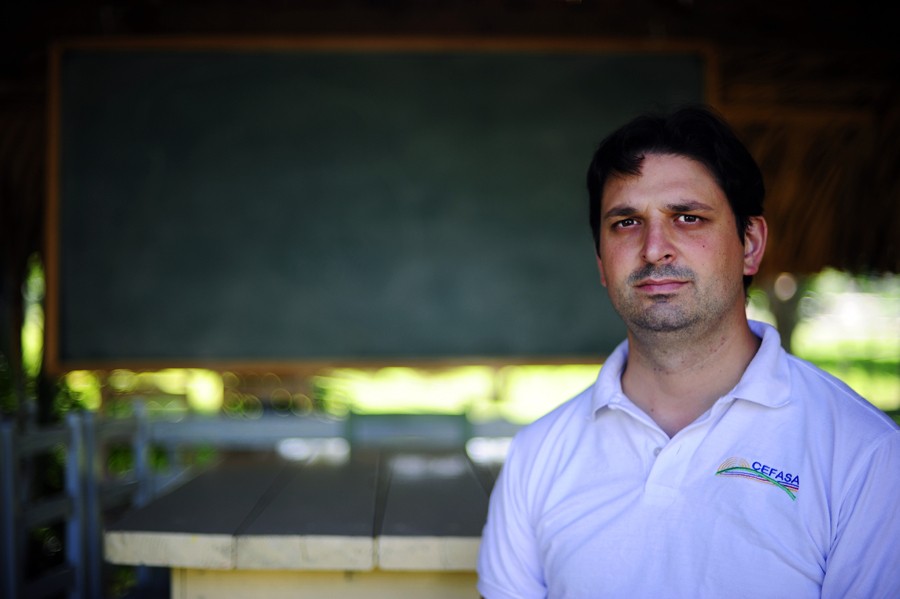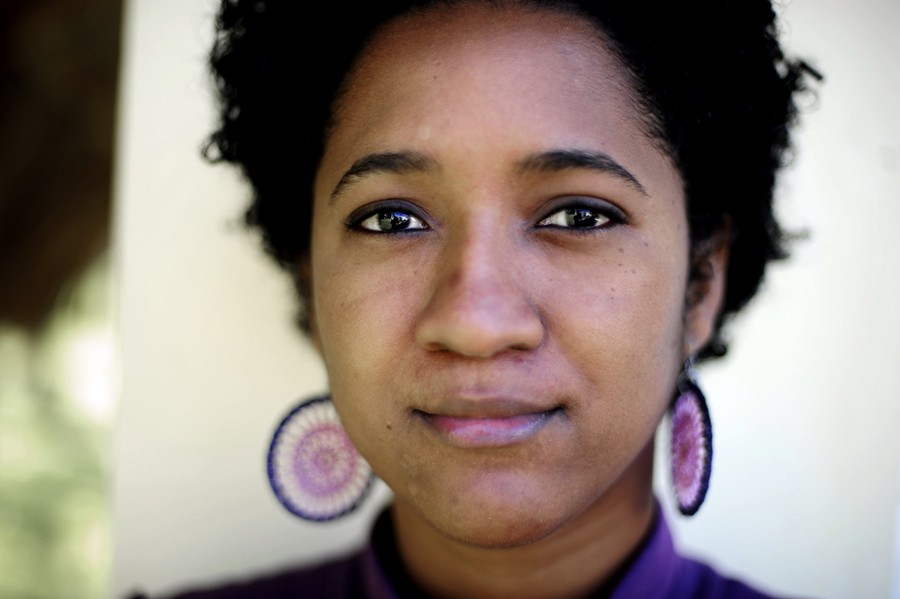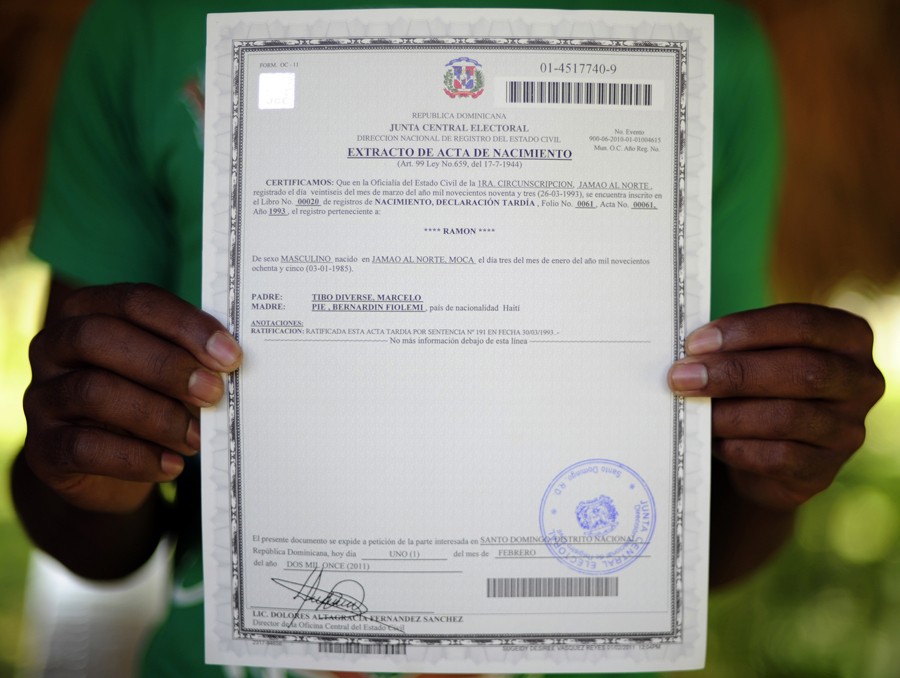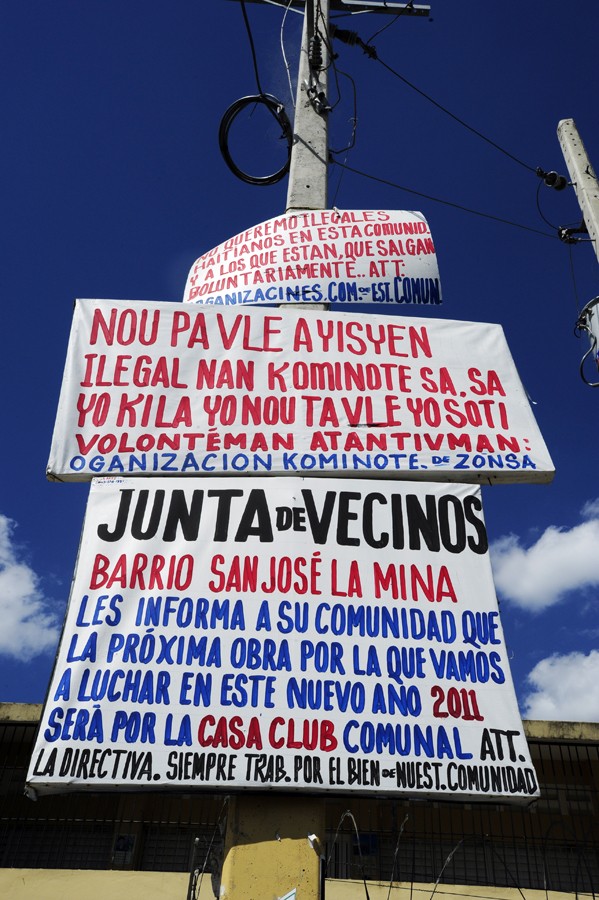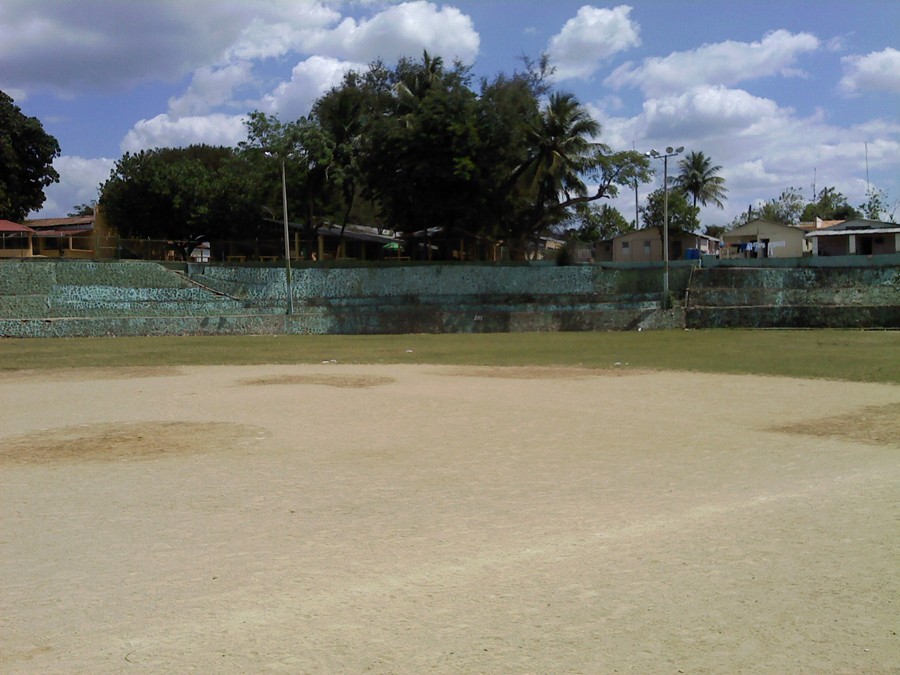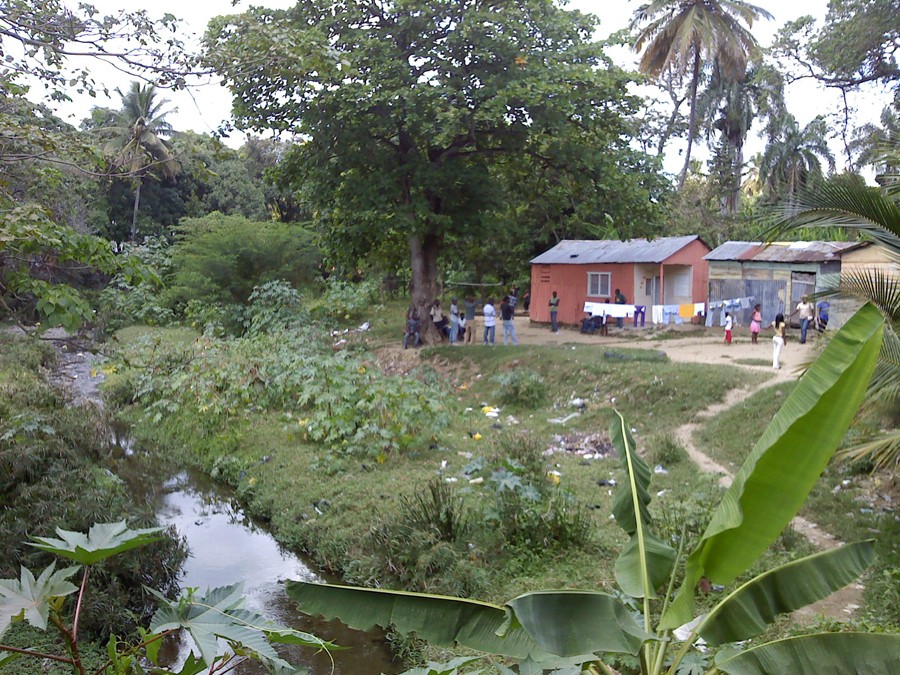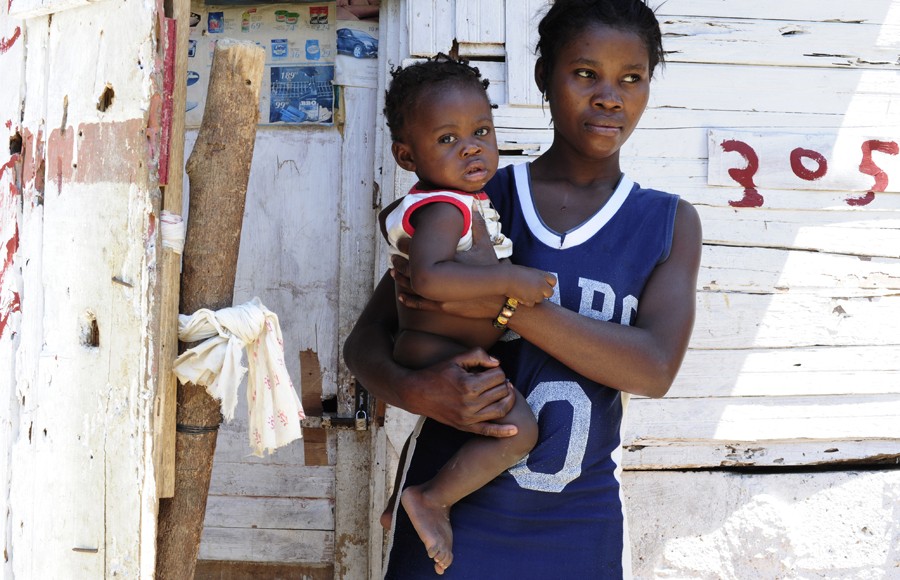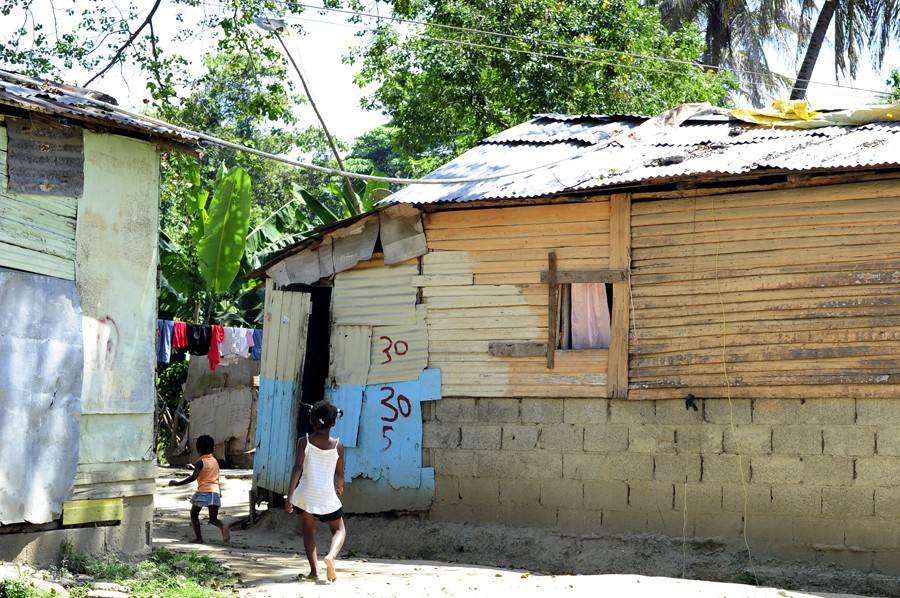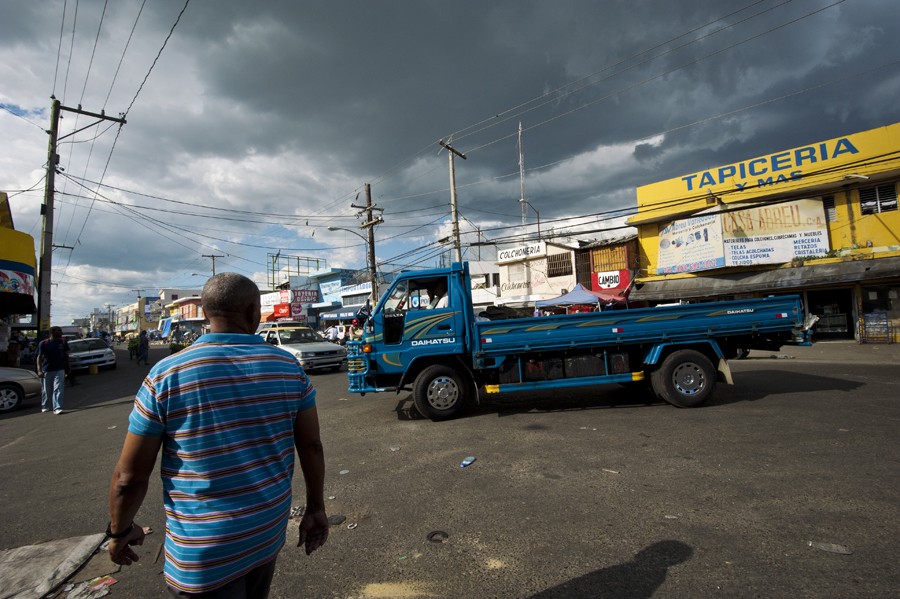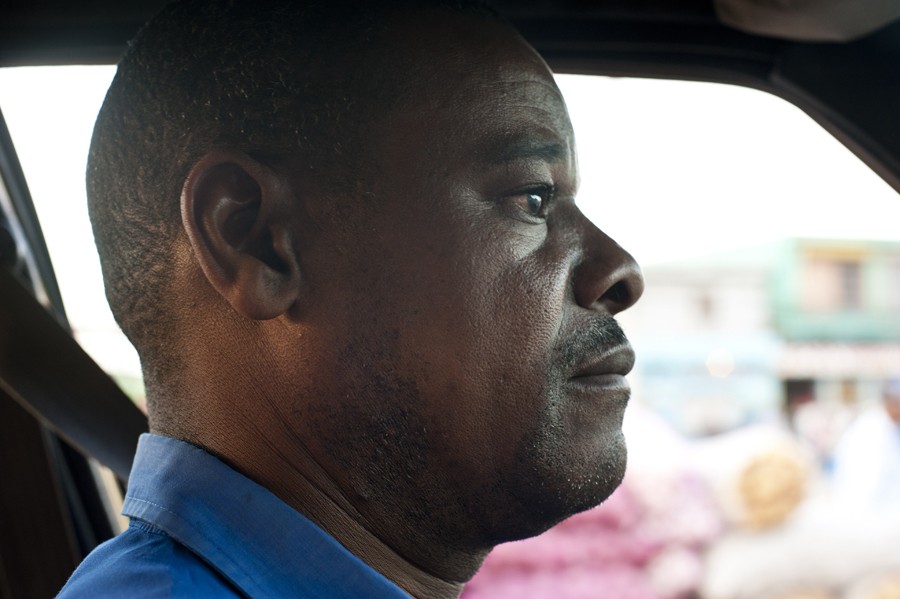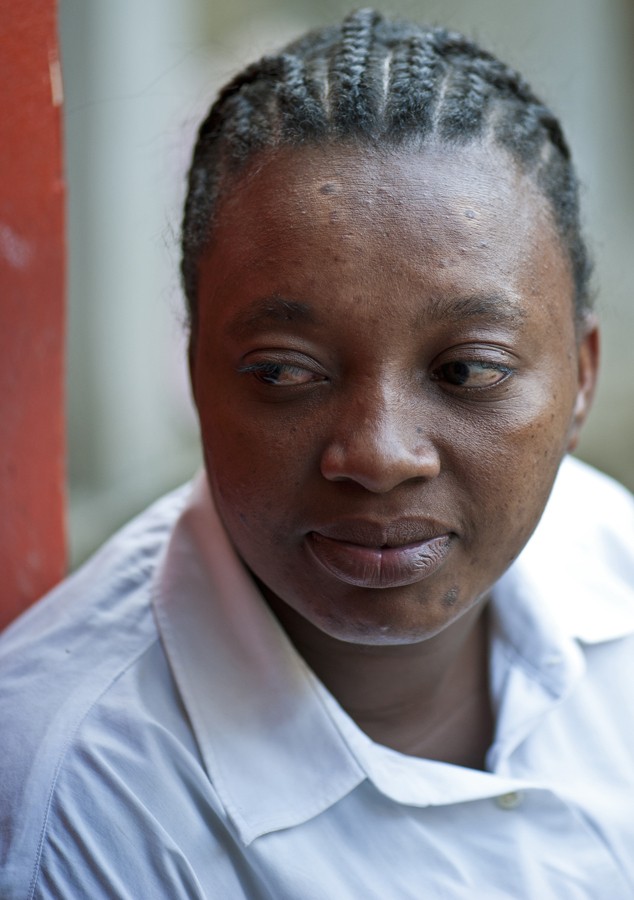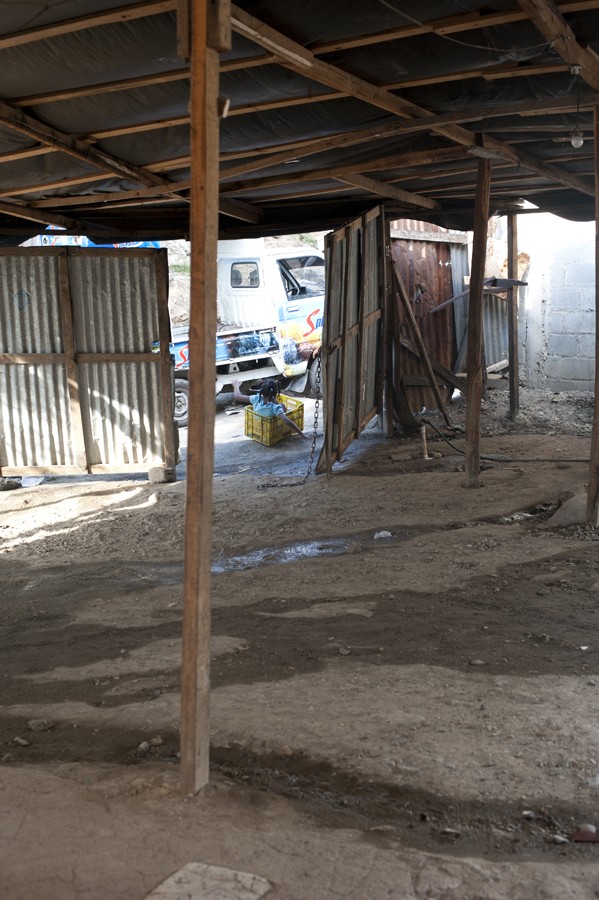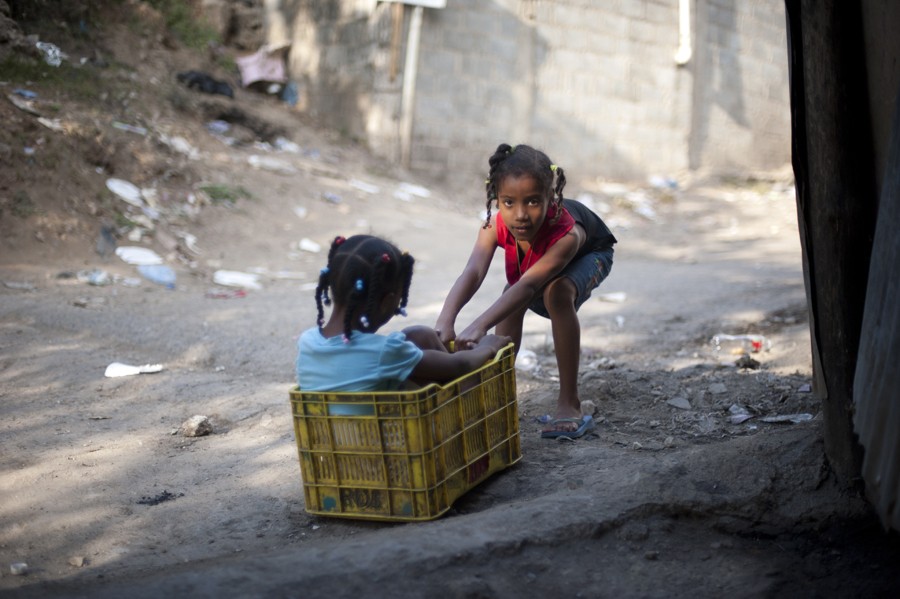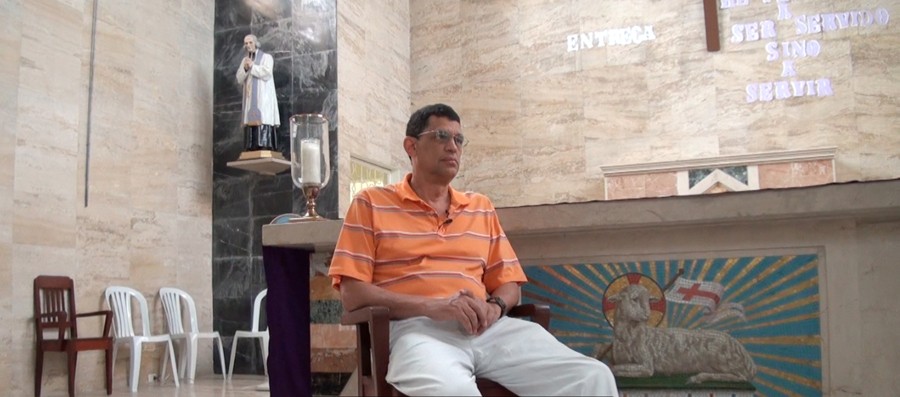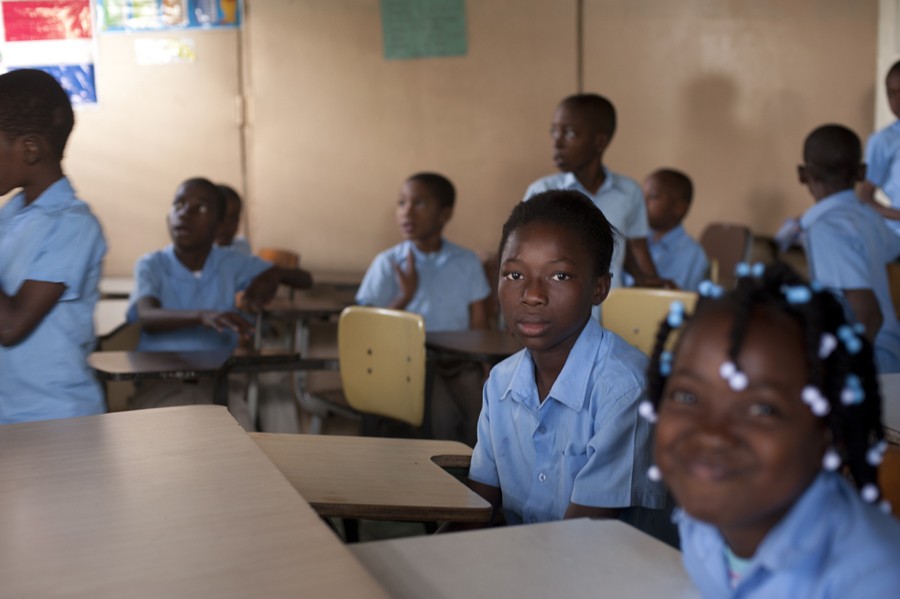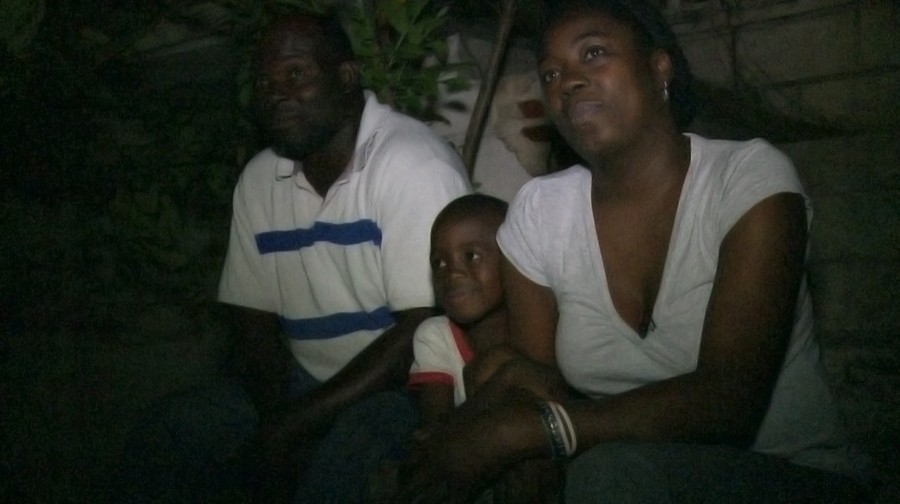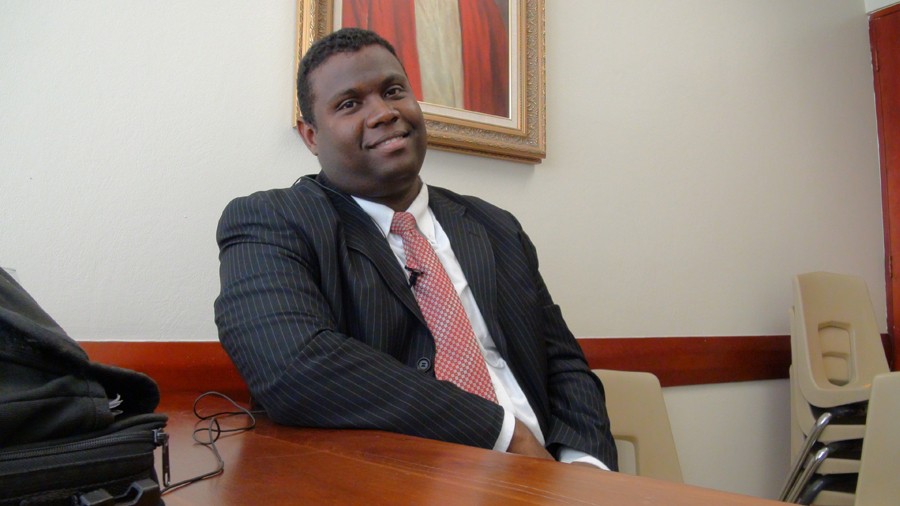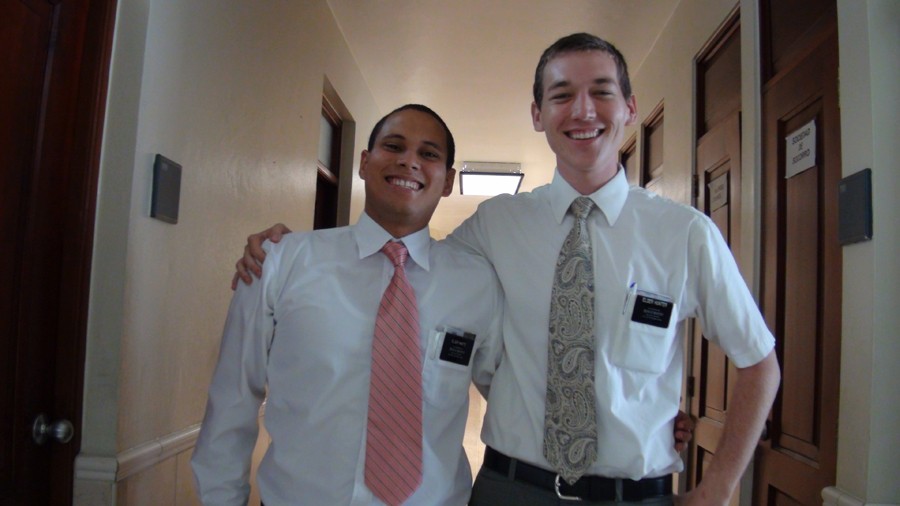Religious Weigh God’s Law against Country’s Law
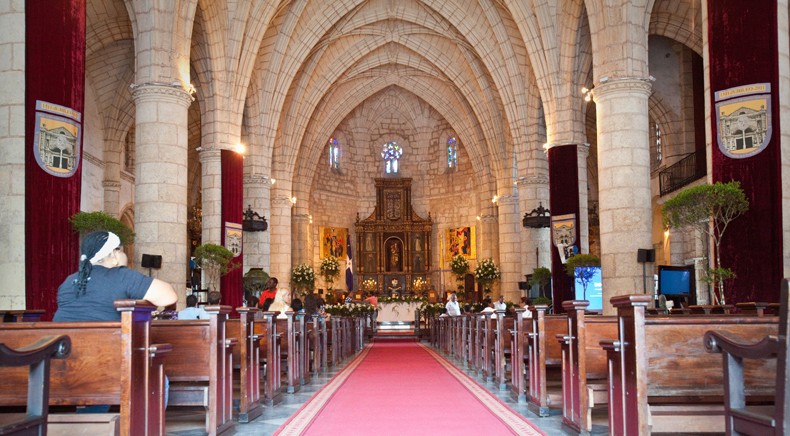
BY NICK NEWMAN
Cronkite Borderlands Initiative
“Inasmuch as ye have done it unto one of the least of these thy brethren, ye have done it unto me.” — Matthew 25:40
SANTO DOMINGO, Dominican Republic – It’s a call to serve the poor. And for many of Christian faith, Matthew 25:40 is a mandate to do as Jesus would do.
But in the Dominican Republic – where birthright citizenship has been outlawed and left thousands of Dominican-born residents of Haitian descent without a country to call their own – doing so has fueled a conflict between this country’s law and what some see as God’s law.
At the center of the tension is the Jesuit Refugee Service, which has 51 offices worldwide, including four in the Dominican Republic – in the border towns of Dajabón and Jimaní, the city of Santiago and a home base in the capital city of Santo Domingo.
The Jesuits, a Catholic order that embraces social justice, advocacy and human rights work as prime tenets, are among the most high-profile of the religious organizations working with poor, displaced Haitians in the Dominican Republic – people who find themselves without the ability to travel abroad, legally find work, access adequate health care or enroll their children in high school or college.
The Jesuits loudly advocate for the rights of the refugees, often finding themselves at odds with government institutions.
Some government “institutions are acting against the law of the country,” said Mario Serrano, national director of the Jesuit Refugee Service in the Dominican Republic. “You cannot deny (Haitians) the right to documentation, education or getting a job. These are young people whose only fault is being born to a migrant who gave his whole life to cutting sugar cane.”
The Jesuits work with the poor, running shelters and providing food and clothing, but they don’t think that’s enough. “We need to help change the political structures of society and denounce when rights have been denied,” Serrano said.
The Dominican government, in turn, accuses the Jesuit Refugee Service of being part of an international conspiracy to unify the island of Hispaniola, which consists of the Dominican Republic and Haiti. Some also have accused Jesuit priests of harboring Haitians in churches at the border and of disregarding federal law.
 SLIDESHOW: Places of worship in the Dominican Republic bring together people of diverse socioeconomic backgrounds. |
In 2006, Dominican Foreign Minister Carlos Morales Troncoso talked openly about such a conspiracy and the Jesuits’ part in it. That same year, Troncoso called members of the Jesuit Refugee Service “leeches.”
As recently as this year, Ramon Antonio Veras, a lawyer and political personality in Santiago, and nationalist presidential candidate Pelegrín Castillo have accused the U.S., among other countries, of a conspiracy to try to unite the island.
Davide Sala, advocacy director for the Jesuits’ Santiago office, said the conspiracy allegations ignore the real problem.
“Attacking us is just another way to not talk about the problem with immigration,” Sala said.
Serrano added, “We are a target. We are not the only ones working with the Haitians, (but) we might be the only ones in the public sphere saying things aren’t right.”
Sometimes the disagreements between the two sides erupt into violence.
Jesuits in the Santiago office say several staff members were assaulted while they attempted to document a mass deportation of some 650 Haitian refugees and Dominicans of Haitian descent in that city in mid-April.
A number of impoverished children who beg for subsistence on the streets were deported, and the repatriations were done so swiftly – some in less than an hour – that the Haitians had no time to call attorneys or inform family members, the Jesuits said.
“We have seen authorities not only arrest people but also humiliate them, dragging them half-dressed from their houses, stripping them of their property and carting them off to Dajabón and Jimaní,” Yaira Portes, a worker at the Santiago Jesuit office, wrote on a Jesuit website. “What is happening is heart-rending.”
History of Advocacy
The Jesuits have a history of standing with the poor, even if it means coming into direct conflict with governments and even the hierarchy of their own church.
Pope Benedict XVI, while still a Cardinal, strongly criticized portions of the Jesuit Liberation Theology, which emphasizes the rights of the poor and disenfranchised.
Jesuit activism has sometimes led to direct conflicts with governments and death for its most outspoken members.
For example, in El Salvador, Jesuits denounced what they considered a dictatorial regime that ignored the plight of the poor. In 1977, a Jesuit priest and a lay deacon were killed along the side of a road. Three years later, the archbishop of the country, Oscar Romero, was assassinated while celebrating Mass. Four nuns were killed in 1980, and in 1989, six Jesuit priests and two lay women who worked at a university were assassinated.
Several Jesuits who were interviewed said they don’t expect that kind of violence in the Dominican Republic. But they said they are prepared to take risks – and to flout the law if necessary.
“Those migrants are among the weakest of the weak,” Serrano said. “And the law tries to be as just as possible. But justice sometimes must go beyond the law. On the seal of our country it says, ‘God, Country, Liberty.’ Notice that God comes first.”
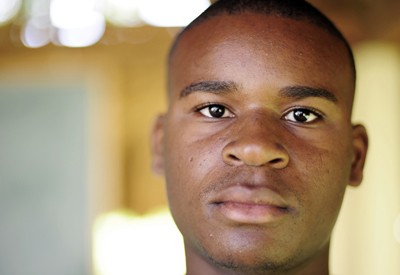
Ramon Tibo, 21, cannot attend college because his legal status has been questioned by the Dominican government. Photo by Brandon Quester |
The Rev. Regino Martinez, director of the Dajabón office in the northern part of the country and among the most outspoken advocates for immigrants, put it more simply yet: “Migrants have rights, even if they are undocumented,” he said.
On two separate occasions in 2009, Martinez was accused of hiding as many as 600 Haitians in a church to keep them from being deported.
At one point, National Border Council President Radhamés Batista called for Martinez’s removal as a priest, saying he shouldn’t be allowed to serve while violating Dominican immigration laws.
"We believe no one is above the law,” Batista told a local newspaper, Dominican Today.
Seeking Justice in the Courts
The Jesuits have taken their battle for human rights to the Dominican courts, winning four citizenship cases so far for Haitians threatened with deportation.
A fifth case, still in process, involves Ramón Tibo, a man of Haitian descent from the northern city of Santiago.
A young man in his 20s, Tibo was born in the Dominican Republic and has a birth certificate to prove it. But in the Dominican Republic, that’s not enough. Identification papers for those of Haitian descent must be obtained anew for most of life’s important steps – applying for college, buying a house or getting married, for example.
For a year, Tibo has been trying to get his cédula – a national identification card – only to be refused. He said he produced his birth certificate but was told that he’s too dark, looks like a Haitian and has a French-sounding family name. Authorities tried to detain him for identity fraud, he said, but lawyers from the JRS helped get him released.
The next day, Tibo, on the advice of Sala and others, went back to Santo Domingo to get his paperwork. This time, his birth certificate was given back to him. But the next day, authorities in Santo Domingo wanted to detain him yet again. That’s when Tibo turned to the Jesuits in Santiago for legal help.
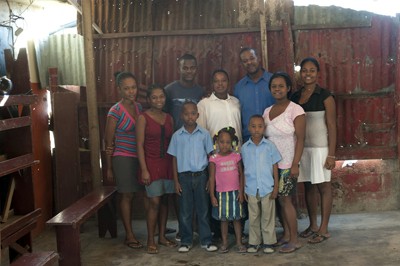
Jean-Louis Raymond and his family move from place to place, unable to afford a permanent home. Photo by Lindsay Erin Lough |
While he is uncertain what the court’s decision will be, Tibo said he hopes his actions will propel others to speak out about what is happening.
“The government wants to destroy the aspirations of many young people like me who have dreams of becoming professionals,” Tibo said. “We must fight for our future.”
Tibo wants to study to be a lawyer so he can help others like him. But for now, he can do little but wait. He walks the streets in fear of being deported to Haiti, a country he’s never laid eyes on.
“The true reality is this,” Tibo said. “You're born in the country and I cannot live a normal life like any other citizen. I just stay at home thinking of what I can’t do.”
Overwhelming Need
While the Jesuits are the most vocal, they’re not the only religious organization coming to the aid of Haitian immigrants in the Dominican Republic.
American Jewish World Service and Christian Aid UK have their own operations on the island. Caritas, an international Catholic charity organization, teams up with the Jesuit Refugee Service on occasion. And while The Church of Jesus Christ of Latter-day Saints doesn’t have a mission to specifically help the stateless, the international humanitarian arm of the Mormon Church, which has a regional headquarters in Santo Domingo, also works with the poor in the Dominican Republic, as do a variety of other denominations.
But with more displaced Haitians pouring into the country after last year’s devastating earthquake, it’s impossible to get help to everyone who needs it, religious leaders said.
“For the moment, we’re not helping much,” said the Rev. Abrahán Apolinario, pastor of Santa Cura de Ars, the local parish in La Zurza. “We are welcoming them into our church. We are just barely starting. But I think in the future, things are going to happen.”
Agathe Champagne, a Catholic nun from Haiti, said she fled to the Dominican Republic after the hurricane and now assists at Apolinario’s parish along with other nuns.
“Home is chaos,” Champagne said. “So we live everywhere.”
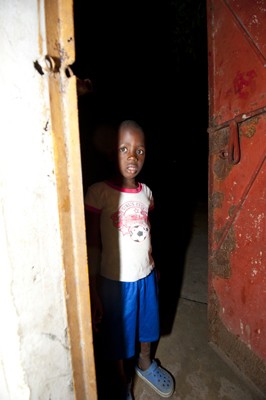
Osiris Fan Fan, son of Domingo Fan Fan and Ulda Luis, peers through the front door of his home in Gazcue, Santo Domingo, Dominican Republic. Because his grandmother did not register his mother at the time of her birth, Osiris cannot attend school. Photo by Nick Newman |
Jean-Louis Raymond and his family demonstrate both the extent of the need for help in Haiti and the limits of what religious organizations have been able to do so far.
The family – with 10 children ranging in age from 4 to 24 – lives in La Zurza, a predominately Haitian barrio and one of the most violent in the capital city.
“This barrio used to be safe when I was a kid, with only knives and machetes,” said a taxi driver by the name of Hipolito. “Now they use machine guns.”
Raymond and his family have no permanent home.
“We stay with one person for a week, then a different person the next week, and even then, sometimes, we can get kicked out. It’s scary, because you never know how long you can stay,” Raymond said during an interview at that week’s home, no more than an open enclosure, with concrete and dirt floors and a tin roof on a side of a hill. The smell was of rotting vegetables and fecal matter – no better than a county dump. Men and boys strolled the neighborhood carrying guns and machetes.
Raymond said his family has never received any sustained help from religious organizations, other than a Catholic nun named Rosa Maria Marmolejos, who oversees a school in the barrio and has helped the family find housing.
“What is help? Is it getting a house? Where we get food? Where we sleep?” Raymond said. “Sometimes they’ll (religious organizations) come in and give us food for a day or two, but then they won’t show up for three or four months. So does helping for one day help?”
Still, Raymond said he has faith in God. His greatest hope is that he can get his children off the island so they can have a better life.
“There are … Dominicans that have a good heart, (that) see a Haitian as a person,” Raymond said. “There are many Dominicans … that see a Haitian as an animal. Here we only have the protection of God, and it is better than Haiti. But I would rather be anywhere than here.”

